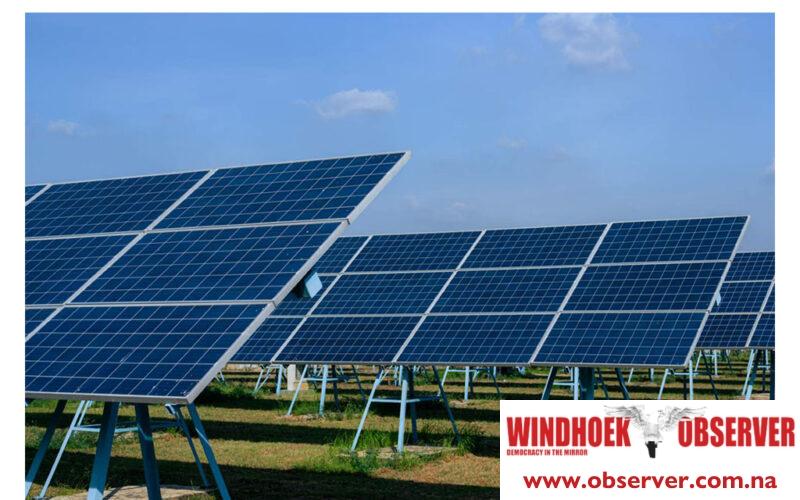Hertta-Maria Amutenja
NamPower’s senior manager of generation projects, Ben Mingeli, has raised concerns over the increasing reliance on solar energy and the challenges it poses for Namibia’s electricity supply system.
Mingeli stated on 9 September that managing demand is becoming increasingly difficult due to the rise in solar energy dependence.
“Going forward, we are going to be faced with a situation where up to 100% of our day demand is on solar, and that’s going to be a challenge,” Mingeli said.
To address this, NamPower is accelerating the rollout of battery energy storage projects, with further expansion expected.
“We will need to roll out more battery energy projects as well as considering solar-based solutions,” he added.
The concerns surfaced as NamPower announced the signing of an Engineering, Procurement and Construction (EPC) contract for the 100MW Rosh Pinah Solar PV Power Plant.
Speaking at the signing ceremony, NamPower’s managing director, Kahenge Haulofu, highlighted the importance of the project, which is expected to ease electricity supply concerns and drive the country towards renewable energy goals.
“This 100MW PV plant, and other infrastructure projects under construction, stem from NamPower’s Integrated Strategic Business Plan (2020-2025). The Rosh Pinah 100MW PV Project is of national importance and will help the government achieve electricity supply security,” Haulofu said
The project, which will cost over N$1.6 billion, is primarily funded through a concessional loan from KfW, with NamPower covering 20% of the costs from its balance sheet.
The contractor, China Jiangxi International, has committed to subcontracting 25% of the construction work to local companies, amounting to over N$350 million.
Haulofu noted that this initiative would generate close to 800 jobs during the construction phase.
Representing the contractor, Deng Yan, managing director of China Jiangxi International Namibia, emphasised the company’s track record.
“For 20 years, we’ve completed 61 projects in Namibia. In partnership with Zhejiang China New Energy, we are confident in delivering this project to the highest standard,” said Yan.
The plant’s construction will take approximately 18 months, with operations set to commence in the second quarter of 2026.




